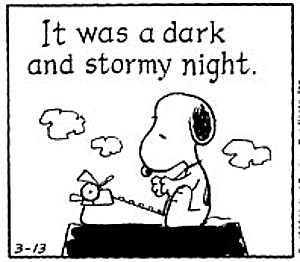With that, let's start looking at Volume 2 of the Twins' Cliff Notes
Chapter 1: "April"
Plot Summary:
With the traditional exposition of some vague optimism and pledges to change, the Twins opened the season with a crushingly grim display of flaccid and ineffective play culminating in a cascade of boos during the home opener.
Faced with trying times, the Twins responded with muted resolve. They continued down the pre-ordained path, changing players only when forced by injuries rather than performance. New leader Paul Molitor remained enigmatic, occasionally catering to long standing pleas from fans (eg. for platooning, against myopic use of closers), but frequently maintaining longstanding habits (eg. valuing experience over upside, offering limited knowledge of advanced statistics).
The players themselves were similarly nonplussed. The biggest news seemed to be that heroic Joe Mauer had grown a beard. Phil Hughes pitched well but failed to win enough games to earn the undying affection of the faithful. Returning favorites such as Torii Hunter, Glen Perkins and Brian Dozier were solid but not sensational. Promising prospects such as Danny Santana and Kennys Vargas regressed. New team members like Blaine Boyer and Shane Robinson did not win any fans or burn any bridges.
At the very end of the month a silver lining emerged, the Twins beat their rival White Sox handily. They beat the White Sox best pitcher (Chris Sale) emphatically. And in the eyes of fans throughout Twins Territory a small glimmer shone as if to say, "well, at least there was that"
Main Character Development:
With so much affirming of the way things have been (from Terry Ryan to Joe Mauer to Phil Hughes) and too little to develop a complete assessment on new people (Molitor, Boyer, Robinson), the greatest development came from an unlikely source.
 |
| Trevor Plouffe as a rookie (L), and in two years (R) |
Trevor Plouffe was not terribly impressive, but he was, also, not terrible. His consistent growth into a consistent presence has been satisfying, not sensational, but satisfying. His defense is competent, his pitch selection is solid and his willingness to meet league wide standards is gratifying. For a man whose errant throws and questionable swing choices led many to beat their heads against their coffee tables at home and their seat mates at the stadium, this is impressive growth.
He has, in effect, completed the same transformation as Neville Longbottom does in the first four Harry Potter books: from punchline to consistent presence. This is the first significant step on the road to heroism, whether it happens with us or with another team is a matter for Chapter 4 (July/the Trading Deadline)
Key Quote/Stat Explained:
SO/BB v.s. W-L. Phil Hughes' Strike out to Walk Ratio in April was 13, that's two K's better than his record setting 2014. Yet over that time his record was an underwhelming 0-4. While these bloggers are often preaching to the choir, it doesn't take much to acknowledge that Hughes pitched far better than his record would suggest and that, popular though they are among lay-fans, a pitchers' record has very little to do with their over all performance.
Literary Term to Impress English Majors:
If you've ever willingly hung around self-important pseudo intellectuals you've heard people talk about how cliche certain things can be. Basically criticizing anything so overused and overdone that it loses all meaning: like how inspiring teams begin from humble beginnings or how self-important pseudo-intellectuals always call things "cliche".
The Twins opening a season with a run of terrible play was certainly cliche for a team with four straight 90 loss seasons, the baseball equivalent of starting a novel with the line: "it was a dark and stormy night". But a cliche can have power if, instead of following the familiar pattern (team grows, learns and overcomes the odds to win), it inverts things (refusing to change, continuing to struggle, willingly accepting mediocre play to gain the ultimate rewards of change--either in personnel or in management). So, yes, the Twins played cliche ball in April, which means they've got us exactly where they want us.



No comments:
Post a Comment